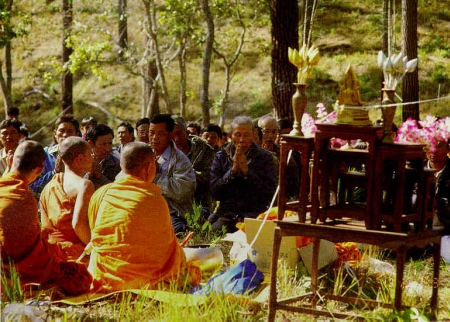I have been giving some thought to the intellectual lessons that have emerged from the Thaksin and post-Thaksin era. The difficulty scholars have had in grappling with Thailand’s political crisis suggests that this may be a good time for some rethinking of familiar concepts.
To set the ball rolling, let me start with a concept (perhaps a too grand a label) that I have always viewed with considerable suspicion: phum panyaa (local knowledge, local wisdom). My hope is that this concept can now be consigned to the intellectual dustbin. For a while it seemed to have considerable potential in defending the knowledge of rural people against the insensitivity of state agencies and development projects. It certainly was a useful political move to highlight the knowledge that local people deploy in the management of natural resources and the pursuit of their livelihoods. Unfortunately, however, phum panyaa became mired in the pastoral fantasies of urban intellectuals. It came to be selectively packaged in terms of an eco-romantic and anti-modernist preoccupation with subsistence economy, forests, and other-worldly pursuits. And, when political push came to shove its empowering force evaporated. Academics and NGO activists who had rallied behind the phum panyaa banner of rural people’s knowledge were all too quick to label them as country bumpkins when it came to their political decision making. Farmers who had been lauded for their ability to carefully manage the forests where the umbilical cords of their children were buried were suddenly transformed into baht-seeking opportunists who sold their votes to the highest bidder. In other words, within the phum panyaa framework, local knowledge was narrowly defined in the image of urban romanticism, a definition which stripped rural capability of its adaptability, innovation, experimentation and pragmatism.
Recovering a sense of the dynamism, diversity and modernity of local knowledge, including local political knowledge, is one of the key academic challenges of the post-Thaksin era.
 Facebook
Facebook  Twitter
Twitter  Soundcloud
Soundcloud  Youtube
Youtube  Rss
Rss 